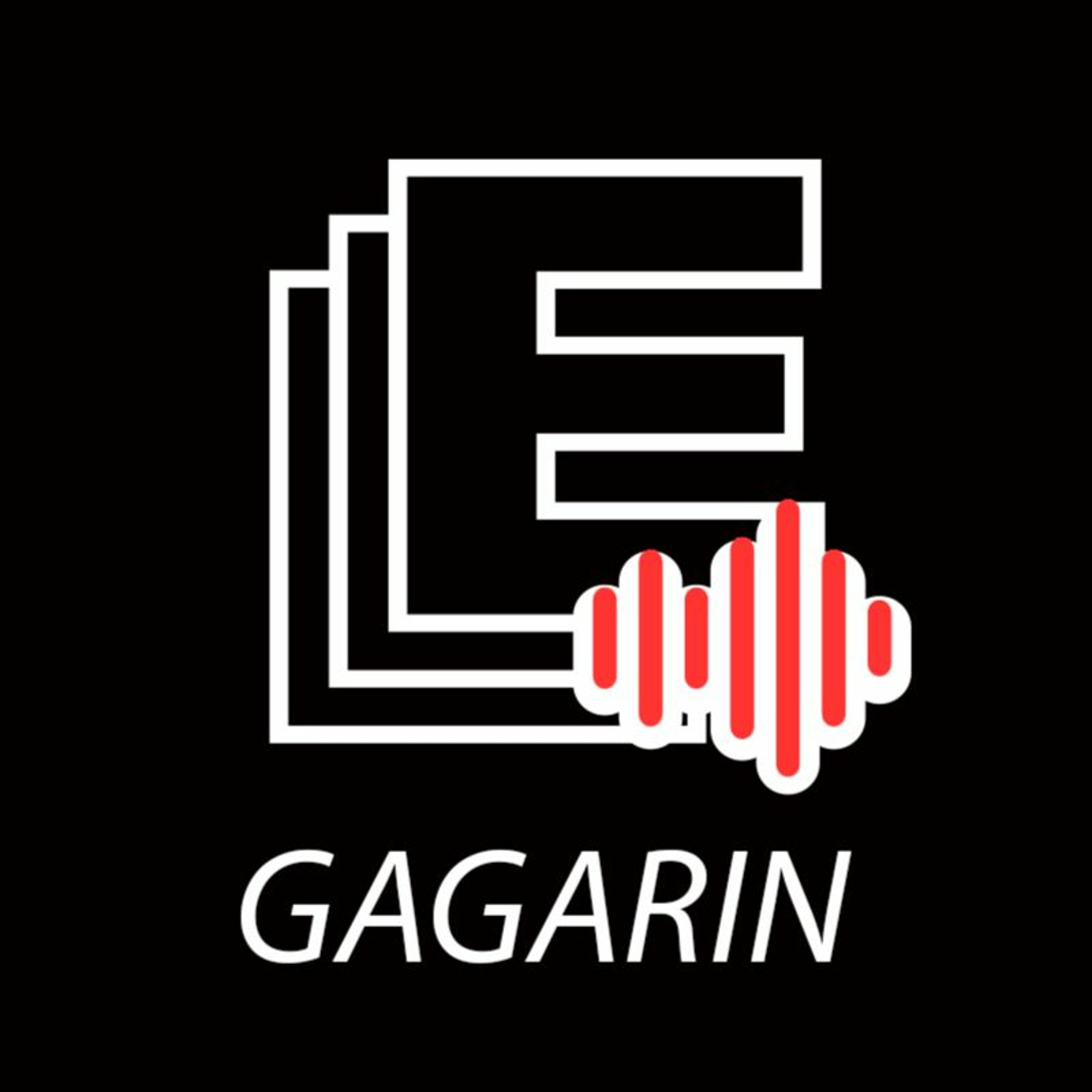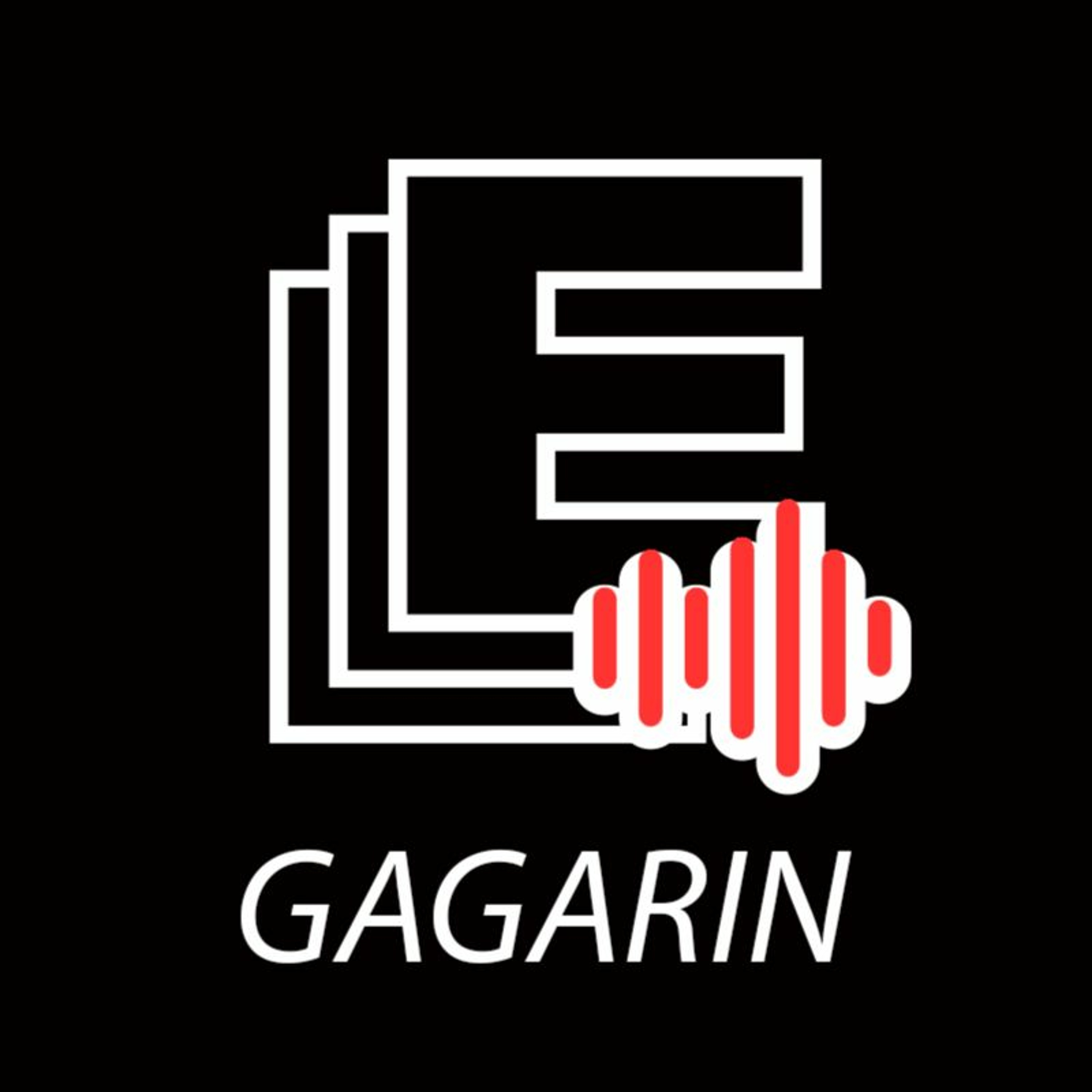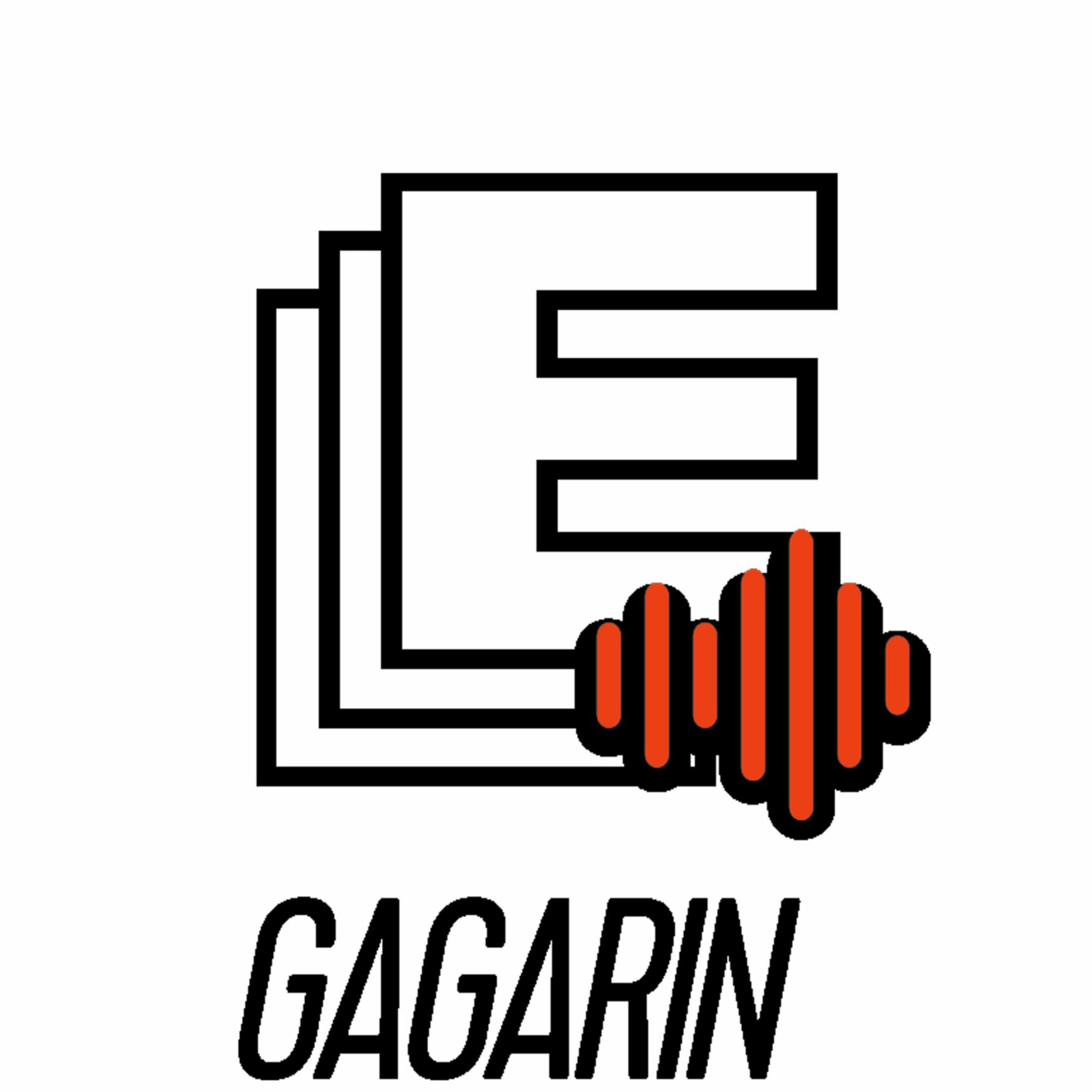Discover Gagarin, the Eurozine podcast
Gagarin, the Eurozine podcast

29 Episodes
Reverse
In this edition of the Gagarin podcast, we talk with Per Nyholm, a seasoned journalist whose multiple visits to Ukraine’s front line provide stark, first-hand insights, critical of Trump’s bullish intervention. The Danish reporter also holds strong views on the US President’s land-grabbing plans for Greenland.
In the final episode of Knowledgeable Youth, the Ukrainian students of the Free People Educational Hub in Vienna reflect on what kind of future they envision for themselves and the world. Their conversation is inspired by the article “Children of the Twenty-First Century” by Lucas Becht, which delves into young people’s futuristic visions in Poland around the 1960s. The students discuss where they see themselves after high school, and what their impressions of Austria and life in Vienna have been so far.
Knowledgable Youth: Science Communication in Times of War is co-organised by Eurozine, RECET, Radio Orange and the Free People Educational Hub in Vienna. The project is funded by the Cultural Department of the City of Vienna. Read more about the project here: www.eurozine.com/focal-points/youth-project/.
In the third episode of Knowledgeable Youth, the Ukrainian students of the Free People Educational Hub in Vienna discuss tertiary education. Due to differences in school systems between Ukraine and Austria, Ukrainian adolescents often enter university earlier than Austrian students. Their conversation focuses on the article "Bleaching Blue Collars“ by Polish scientist and researcher Agata Zysiak, drawing insights from the experiences of first-generation students under state socialism in Poland and the barriers they faced when trying to enter university. The students share their own thoughts about entering university and the difficulties and challenges they might encounter in Vienna.
Knowledgable Youth: Science Communication in Times of War is co-organised by Eurozine, RECET, Radio Orange and the Free People Educational Hub in Vienna. The project is funded by the Cultural Department of the City of Vienna. Read more about the project here: www.eurozine.com/focal-points/youth-project/.
In the second episode of Knowledgeable Youth, the students of the Free People Educational Hub discuss a theme that is close to their current experience and many others' in Vienna: migration. The group of Ukrainian students explore migration with Ukrainian scientist and researcher Olena Yermakova of RECET, drawing insights from her article "The Way Home.“ Join the students as they reflect on migration through their personal experience of forced displacement.
Knowledgable Youth: Science Communication in Times of War is co-organised by Eurozine, RECET, Radio Orange and the Free People Educational Hub in Vienna. The project is funded by the Cultural Department of the City of Vienna. Read more about the project here: https://www.eurozine.com/focal-points/youth-project/.
Welcome to the first episode in the Knowledgeable Youth series! This series is developed by students from the Free People Educational Hub – a school for young people from Ukraine based in Vienna, who have been displaced by Russia's war on Ukraine. Together, they explore current themes in the social sciences. This episode introduces the young voices behind Knowledgeable Youth and shares how education is a means to freedom for them.
This project was co-ordinated by Carine Chen (Eurozine) and Irena Remestwenski (RECET).
Knowledgable Youth: Science Communication in Times of War is co-organised by Eurozine, RECET, Radio Orange and the Free People Educational Hub in Vienna. The project is funded by the Cultural Department of the City of Vienna. Read more about the project here: https://www.eurozine.com/focal-points/youth-project/.
The Active Amputee blog's Björn Eser belives that the way we go about prosthetics should change. He's a lover of the outdoors, even more so since his amputation, but he takes an issue with the limits of social and medical support for disabled people. https://www.theactiveamputee.org/
Please support Eurozine on Patreon: https://www.patreon.com/Eurozine
Clock times and social times conflict across much of Europe. Timekeeping is a deeply political matter, and João Lipinsky Nunes of Better Times takes issue with them.
This conversation is a bonus to accompany our talk show episode on timekeeping from our Standard Time production: https://www.eurozine.com/its-about-time/
Please subscribe, like this episode and check out Standard Time at eurozine.com/standardtime
Overlapping crises, enforced political passivity and a new political normal: all things that gradually dismantle a democracy. Long standing Eurozine contributor, historian Ferenc Laczó joins editor-in-chief Réka Kinga Papp to discuss how a democracy can be alive and dead at the same time.
Laczó took part in the discussion about how democracies die in the Eurozine focal point ‘The writing on the wall’ with his article 'How democracies transform, fast and slow' : https://www.eurozine.com/how-democracies-transform-fast-and-slow/
A longer version of this conversation with bonus material is available to Eurozine's patrons. Support our work with as little as €5/month or more to access extra content and help sustain this publication that connects you with over 100 publications from across Europe. www.patreon.com/Eurozine
Please subscribe to the podcast and leave a review so more people can find us. You can also subscribe to our weekly newsletter, so you’ll always know what’s worth thinking about: www.eurozine.com/newsletter/
The European experience has changed in biblical proportions in the past year. A major land war in Ukraine, instances of genocide, and the continued rise of anti-democratic political movements pose more than a mere challenge. On the other hand, the introduction of AI to the general public is yet not fully understood. All of these are framed by the increasing disruptions of the climate crisis. Where to, then, for Project Europe? André Wilkens returns to the pod to identify opportunities among the threats and to announce a major new project.
A longer version of this conversation with bonus material is available to Eurozine's patrons. Support our work with as little as €5/month or more to access extra content and help sustain this publication that connects you with over 100 publications from across Europe. www.patreon.com/Eurozine
Please subscribe to the podcast and leave a review so more people can find us. You can also subscribe to our weekly newsletter, so you’ll always know what’s worth thinking about: www.eurozine.com/newsletter/
Although it makes for a great dramatic effect, the theories of the sudden death of democracy disregard the gradual erosion and capture of institutions, and the role of the populace - argues political scientist John Keane.
Keane, a key theoretician of media history joins from his home in Melbourne, Australia to discuss his article, 'How democracies die, fast and slow'.
https://www.eurozine.com/how-democracies-die-fast-and-slow/
A longer version of this conversation with bonus material is available to Eurozine's patrons. Support our work with as little as €5/month or more to access extra content and help sustain this publication that connects you with over 100 publications from across Europe. https://www.patreon.com/Eurozine
Today's topic is the keynote article Eurozine's new focal point, 'The writing on the wall'. In it, Keane and Co. discuss the challenges democracies fact worldwide. On a more practical note, analyses map the state of democratic governance in Serbia, Moldova, Croatia, Bulgaria and Ukraine, Iran, Turkey, Georgia, Brazil and Greece - and more are to come. https://www.eurozine.com/focal-points/writing-on-the-wall/
Please subscribe to the podcast and leave a review so more people can find us. You can also subscribe to our weekly newsletter, so you’ll always know what’s worth thinking about: www.eurozine.com/newsletter/
The centuries-old debate over whether certain countries belong to the East or the centre of Europe has fairly little to do with geography. In this extended episode, exclusively available to our Patrons, anthropologist Iván Kalmár discusses privilege and its fight against equality; race and cultural hegemony, and more.
You can read Iván Kalmár's article, the basis of this conversation, in Eurozine: https://www.eurozine.com/imitators-spurned/
This episode has a longer, extended version available only to our Patrons. You can become a patron by pleadging as little as €5 a month: https://www.patreon.com/Eurozine
You can also subscribe to the Eurozine Newsletter, so you'll always know what's worth thinking about: https://www.eurozine.com/newsletter/
Ukrainian artists are pressured by their international peers who still entertain the naive idea that the purpose of culture is reconciliation.
They have to push back against these naive initiatives, but walk a tightrope as they need to nevertheless keep western attention, says curator and art historian Kateryna Botanova.
This episode is a condensed and edited version of a longer conversation, which is available in its entirety only to our Patrons, featuring bonus material about what European youth have been afraid of – and how their concerns have quickly shifted. You can get access to the full episode, and more giveaways by becoming a Patron for as little as €5 a month at patreon.com/eurozine
You can read Kateryna Botanova's article in Eurozine, including the two she discusses in this episode:
The art of misunderstanding, 2 January 2023
https://www.eurozine.com/the-art-of-misunderstanding/
Defined by silence: The Ukrainian art that was destroyed - and the art that never happened
6 May 2022 https://www.eurozine.com/defined-by-silence/
Please subscribe to the podcast and leave a review so more people can find us. You can also subscribe to our weekly newsletter, so you’ll always know what’s worth thinking about: www.eurozine.com/newsletter/
In this episode of Gagarin, director André Wilkens talks about the state of the European project ahead of Europe Day or Schumann Day on the 9th of May. The director of the European Cultural Foudation points out how Putin's war on Ukraine reminds Europe of why it needed to unite in the first place; the role of cultural workers in the crisis of war and destruction; and ultimately, what one can celebrate on Europe Day when the very integrity of the European Project is being contested.
Spoiler: André Wilkens wants a public holiday dedicated specifically to celebrate and reflect on the European Union. And don’t we all?
This episode is a condensed and edited version of a longer conversation, which is available in its entirety only to our Patrons, featuring bonus material about what European youth have been afraid of – and how their concerns have quickly shifted. You can get access to the full episode, and more giveaways by becoming a Patron for as little as €5 a month at patreon.com/eurozine
You can find the programme of this year's Europe Day at https://europeday.eu/
Or get information about the Cultura of Solidarity Grant of the ECF dedicated to supporting cultural workers affected by the war in Ukraine: https://culturalfoundation.eu/stories/culture-of-solidarity-fund-ukraine-edition/
Please subscribe to the podcast and leave a review so more people can find us. You can also subscribe to our weekly newsletter, so you’ll always know what’s worth thinking about: www.eurozine.com/newsletter/
Today’s guest is a native of Sevastopol: Anton Shekhovtsov, Director of the Centre for Democratic Integrity, and author of the book ‘Russia and the Western Far Right’.
In this episode, he tells about Russian imperialist mythology and how the insane propaganda of Ukraine’s de-Nazification came about; the new status of Belarus as a mere vassal state; desertion as a political option; and how western elites have abandoned their alliances with Vladimir Putin – with a few notable exceptions.
This podcast episode is a condensed and edited version of a longer conversation, which is available in its entirety only to our Patrons, featuring bonus material about the Biden administration’s non-interventionist stance and Donal Trump’s surprising comments on Putin’s tactical genius.
You can become a patron by pledging as little as 5 euros a month, or more for even more giveaways and exclusive content on Patreon at patreon.com/eurozine
Read more in Eurozine about Ukraine: https://www.eurozine.com/tag/ukraine/
Find Anton Shekhovtsov’s petition to Western universities here: https://www.change.org/p/western-universities-give-preference-to-ukrainian-applicants-to-western-universities-in-the-year-2022
His articles in Eurozine: https://www.eurozine.com/authors/anton-shekhovtsov/
His piece in Falter on Russia’s Big Lie: https://www.falter.at/zeitung/20220227/russlands-grosse-luege
And talking to Bloomberg’s Lionel Laurent:
https://www.bloomberg.com/opinion/articles/2022-02-28/putin-had-lots-of-friends-among-europe-s-elite-many-have-now-gone-quiet
You can follow him on Twitter: https://twitter.com/A_SHEKH0VTS0V
Please subscribe to the podcast and leave a review so more people can find us. You can also subscribe to our weekly newsletter, so you’ll always know what’s worth thinking about: www.eurozine.com/newsletter/
Behind vaccine hesitancy and the skyrocketing of bogus medicine, lies a motivated rejection of science, and the effects of a decades-long campaign waged against climate science and medicine. Political scientist Péter Krekó offers a way to understand why public health has become such a battleground of beliefs, and why rationality is not a straight antidote.
This episode has an extended version available to Eurozine's Patrons here: https://www.patreon.com/Eurozine
In the full conversation, we look into what effect the vaccines will have on the soon upcoming Hungarian elections, and whether there is an antidote to junk science and commercial bogus.
Péter Krekó is the director of the Budapest-based think tank Political Capital Institute, Hungary. He is also a former Europe’s Futures fellow of Eurozine’s long-time collaborator, the Institute of Human Sciences in Vienna. He has written extensively in Eurozine on conspiracy theories and disinformation, and their implications for the pandemic.
Find Péter Krekó's latest article, 'Mutations of science in the pandemic' in Eurozine: https://www.eurozine.com/mutations-of-science-in-the-pandemic/
And his further articles: https://www.eurozine.com/authors/peter-kreko/
Read more from Eurozine's focal point 'Endemic: when emergency is the norm': https://www.eurozine.com/focal-points/endemic/
Please subscribe to the podcast and leave a review so more people can find us. You can also subscribe to our weekly newsletter, so you’ll always know what’s worth thinking about: https://www.eurozine.com/newsletter/
Europe is facing a demographic crisis, resulting in suffocating labour shortages, and yet, incoming migration is more and more rejected in mainstream politics. Can the EU come to terms with this great contradiction without an implosion?
Editor-in-chief Réka Kinga Papp asks Ranabir Samaddar, distinguished chair in migration and forced migration studies of the Mahanirban Calcutta Research Group in Kalkota, India. He also was a visiting fellow earlier this year at Eurozine’s long-time collaborator, the Institute of Human Sciences in Vienna.
How is whiteness constituted and why is it so fragile? What's at stake in discussing colonial memory for eastern Europeans? Do they actually eat a lot of cabbage? (Spoiler: they do. It's delicious.)
Historian Aro Velmet, editor of the Estonian cultural journal 'Vikerkaar' talks his recent articles on medical history and colonial memory from Eurozine, and gives insight into how 'Vikerkaar' curates its very diverse issues.
Subscribe to the Eurozine newsletter: www.eurozine.com/newsletter
Read Aro Velmet's article, 'Promise and peril', on how a yellow fever vaccination campaign went horribly wrong in the French colonies in West Africa: https://www.eurozine.com/promise-and-peril/
'Renaming is about respect': Aro's discussion with historians and curators about 'rendering race' in visual culture: https://www.eurozine.com/renaming-is-just-about-respect/
Bart Pushaw on 'The visual whitening of Estonians': https://www.eurozine.com/the-visual-whitening-of-estonians/
'Room temperature: housing in crisis' is a focal point co-curated by Aro: https://www.eurozine.com/focal-points/room-temperature/
And find more reads on eastern Europe and how it's constructed:
Mykola Riabchuk on 'Shifting the wall further east': https://www.eurozine.com/shifting-the-wall-further-east/
Enda O'Doherty on the concept of Central Europe and the nostalgia for Europe: https://www.eurozine.com/the-europeans/
Réka Kinga Papp on why Central Europe doesn't exist: https://www.eurozine.com/im-not-but-all-my-neighbours-are/
Timothy Garton Ash about the invention of eastern Europe: https://www.eurozine.com/are-crises-necessary/
The EU needs to prove itself the champion it has long been projected to be, André Wilkens argues in our interview about recovery funds, cultural transformation and the advantages of enforced digitization in culture. In this conversation, the director of the European Cultural Foundation addresses budget lines and bank holidays and discusses his own pandemic experience as a migratory cultural agent.
Subscribe to the Eurozine newsletter, so you'll always know what's worth thinking about: https://www.eurozine.com/newsletter/
The European Cultural Foundation's joint publishing with Eurozine: https://www.eurozine.com/academic-partners/european-cultural-foundation/
André Wilkens makes the case for Analogue Fridays: https://www.deutschlandfunkkultur.de/plaedoyer-fuer-einen-analog-friday-jetzt-legt-doch-mal-das.1005.de.html?dram:article_id=494742
The European Pavillion: https://culturalfoundation.eu/activities/the-european-pavilion
The Europe Challenge launches on 9 May, Europe Day: https://culturalfoundation.eu/activities/the-europe-challenge
How do journalists, academics and artists react to political pressure in their profession, on their institutions? When do they reach a boiling point, and how can they avoid self-censorship? The first part of the 31st European Meeting of Cultural Journals – entitled ‘Watch your mouth! Journalism now and tomorrow’ – was livestreamed from Budapest on Saturday 14 November. The discussion focused on the pressing issues facing independent publishing in central eastern Europe.
Learn more about the 31st European Meeting of Cultural Journals here: https://www.eurozine.com/under-pressure/
Watch the twin discussion with junior journalists and students their expectations for a professional future in a country that has obliterated media freedom: https://youtu.be/Jm8NM5PIA0c
Subscribe to the Eurozine newsletter: https://www.eurozine.com/newsletter
And follow and share Gagarin, the Eurozine podcast!
From climate change to political corruption and authoritarianism, leaders of protest movements share a common dilemma: how to achieve impact when existing parties and institutions cannot be trusted?
Claus Leggewie talks with emerging leaders of European protest movements: Helena Marschall of Fridays for Future Frankfurt (Germany), Dóra Papp of aHang platform (Hungary) and Radu Vancu of the We See You movement in Sibiu (Romania). This discussion was recorded at the 30th European Meeting of Cultural Journals in Berlin, November 2019, at the anniversary of the fall of the Berlin Wall.
Subscribe to the podcast and leave a review so more people can find us. You can also subscribe to our weekly newsletter, so you’ll always know what’s worth thinking about: https://www.eurozine.com/newsletter/
Support Eurozine from as little as €5 a month: https://www.eurozine.com/support-eurozine/
Cover image from Pxhere CC0 Public Domain. https://pxhere.com/en/photo/1333142

























